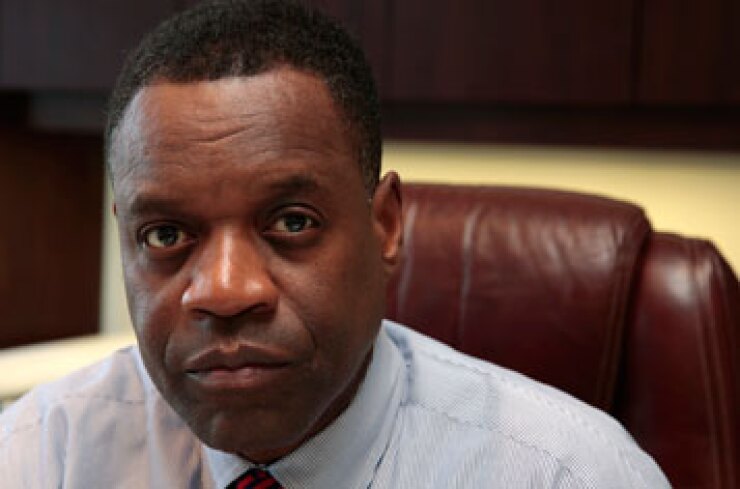
CHICAGO — Detroit may pay more than $4 million in fees to Barclays Capital Inc. to secure a $350 million debtor-in-possession financing.
The financing is divided into two notes that are expected to total $350 million, and Detroit agreed to pay Barclays 1.25% of the principal amount of each note, according to the
That would be $4.375 million if the entire $350 million loan is funded.
The city will have to pay a minimum of $750,000 regardless of whether any debt is issued under the terms of the commitment fee. The loan, which matures in 2.5 years, carries an interest rate based on the London Interbank Offered Rate plus 2.5%, plus a 1% LIBOR floor, translating into an effective rate of 3.5%. Barclays plans to resell the debt after the deal closes.
Barclays can increase the LIBOR floor up to 1% a year and the interest rate by 2%, if the bank determines the increases are necessary for a successful syndication of the debt, the letter said.
The bank defines a successful syndication as one in which it would achieve a hold level of no more than $175 million of the $350 million deal.
The city would also owe a subsequent fee for any additional financing or an amendment to the original DIP, such as extending the maturity, the letter said.
Detroit also agreed to "reasonably cooperate with us with regard to immaterial changes requested by potential participants prior to the successful syndication" of the deal, Barclays said.
The fee letter, marked "personal and confidential" was sent to Detroit in care of Miller Buckfire & Co. LLC, the city's investment banker, from John Gerbino, managing director at Barclays.
It's dated Oct. 6, 2013, and signed by Detroit emergency manager Kevyn Orr.
Barclays is to get a super-priority lien. The loan is backed by the city's income and casino tax revenues. Several of the city's creditors, including bond insurers, are fighting the deal in court.
A hearing on the DIP loan has been scheduled for Dec. 10.
The city plans to use $230 million of the loan for termination payments on a series of interest-rate swaps that currently have a lien on casino revenue. Another $120 million, dubbed the Quality of Life Note, would pay for service improvements.





